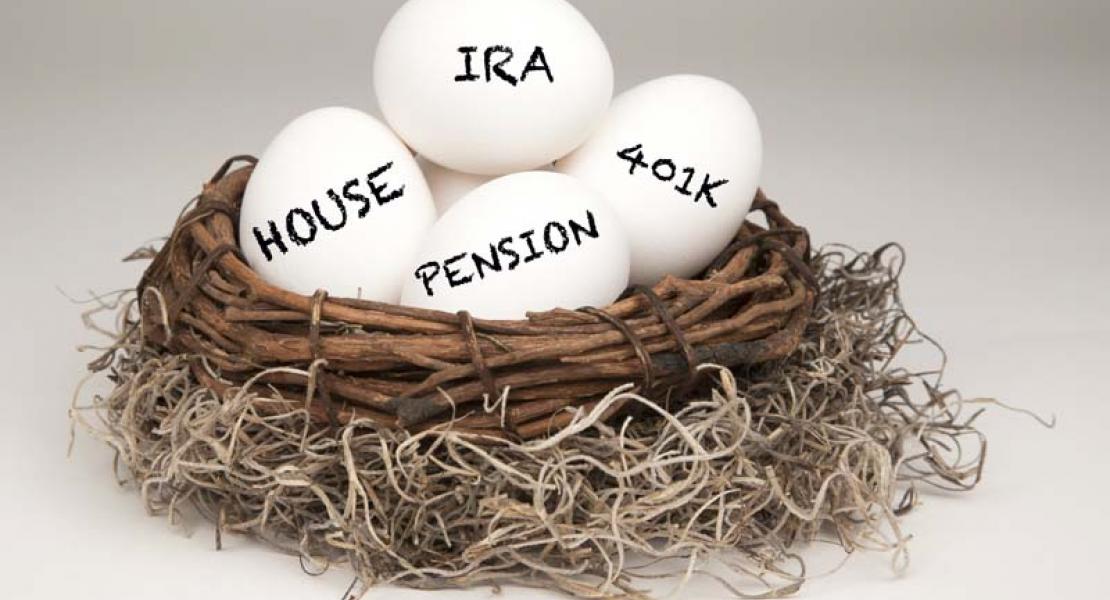
Real Estate IRA's
Given the demise of real estate prices in recent years and the potential for resurgence, it is surprising so little is known about Real Estate I.R.A.’s.
Given the demise of real estate prices in recent years and the potential for resurgence, it is surprising so little is known about Real Estate I.R.A.’s. With rising prices in Southwest Florida coupled with a potential plateau of the stock market, individuals may wish to consider moving a portion of their qualified retirement plans from Wall Street to the beaches of Florida through investing in real estate. Many Individuals are simply unaware of how easy it is to transfer funds tax-free from an existing retirement account into a Self Directed IRA.
There are numerous facilitators we have worked with that our office can direct you to (see Penscotrust.com as well as theentrustgroup.com) to serve, among others, as Custodians for your Self Directed IRA.
With a few exceptions, the process of purchasing real estate with your IRA is similar to purchasing other conventional investments with your IRA. Once your self-directed account has been established and funds transferred, simply instruct your custodian to purchase the specific investment property through a real estate letter of direction. Once received, the custodian will act on your instructions and remit funds to our office, or the real estate closing attorney you have selected to handle the transaction.
When purchasing Real Estate with your IRA, there are 4 main differences between buying Real Estate for yourself and your retirement account.
Title: When purchasing an asset for your IRA it is imperative that it is properly titled in your IRA's name, listing the custodian, For the Benefit of (FBO) Your Name IRA.
Funding:When purchasing an investment for your IRA, the funds required must come directly from your IRA. Accordingly, the custodian sends funds directly to our office per your instructions.
Expenses/Profits: Any expenses or income associated with an IRA investment must be originated or remitted to your IRA.
Signatures: Documents regarding IRA investments must be signed by the firm acting as custodian on behalf of your IRA.
While there is no limit on the number of IRA accounts, the allowable annual contributions cannot exceed the applicable limits of the plan you have selected. Funds can be transferred from an existing IRA, 401k, or 403b to a self-directed IRA to the custodian for the purposes of purchasing real estate. You can elect to transfer all or a portion of your previous retirement funds to self-direct them in investments. Retirement accounts among spouses may also be grouped together to purchase property. If you are looking at purchasing a rental property, all income generated by a property owned by your IRA must return to your IRA, in order to retain the tax-deferred or tax-free status of the investment.
Below is a list of some frequently asked questions:
Can my IRA purchase real estate that I presently own? No. This is considered a prohibited transaction (see IRC 4975). You may not purchase a property or interest in a property that is presently owned by a disqualified person. Disqualified persons include yourself and family members of linear descent. Additionally, your IRA cannot purchase real estate that your corporation, partnership, or LLC owns for the same reason.
May I live or work in a property that my IRA owns (i.e., personal residence, retirement home, office)? No. This is considered a prohibited transaction (see IRC 4975). This is perhaps the biggest roadblock to buying property with an IRA as it cannot be acquired for personal use. No exceptions.
Can my IRA invest in a newly formed entity (limited partnership, limited liability company, c-corporation, land trust) that will invest in real estate? Yes. Investments in newly formed private entities are permissible under Internal Revenue Code, with exception of Sub Chapter S corporations.
When I sell a property owned by IRA, may I keep a portion and send the remaining portion to the custodian? No, all income generated from the sale of property owned by your IRA must return directly to the IRA and cannot pass through your hands. Remember, the purpose is to provide for your retirement, not your current lifestyle.
Can I do a 1031 Exchange when I sell my real estate IRA? No. There is no need. With real estate IRA’s there is no taxable gain inside the retirement plan nor time restraints. You are free to reinvest the funds into other real estate or simply transfer the proceeds back into the stock market or the original account where they were located.
Can I finance my IRA real estate purchase? Yes. Provided the property stands for security and is not personally guaranteed by the borrower. Unfortunately, although permissible conventional financing will be a hurdle as few if any, lenders will grant financing on a property purchased through an IRA.
Is my IRA required to hold 100% interest in the property? No. Recent revenue rulings provide that you may create your own Limited Liability Company or related entity to own a portion with your own cash and a portion attributed to your IRA. The only criteria are that the IRA must own the controlling interest (51% or more). From a practical standpoint, the bookkeeping for this approach may prove onerous.
May I provide additional funds to my IRA with existing cash? Yes. A little-known strategy is to fund your account with existing cash. The IRS penalizes the taxpayer 6% for excessive contributions, however, this may prove worth it and makes the transaction and process of purchasing much cleaner.
At the end of the day, only you can decide what is best for you. Many individuals feel that real estate is a very tangible asset that is poised to bounce back. This discussion is merely intended to provide prospective real estate purchasers with options that may be available to them and is not intended to provide specific investment advice.